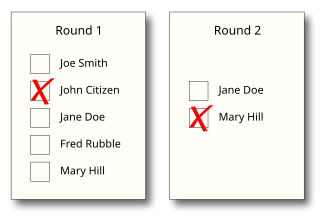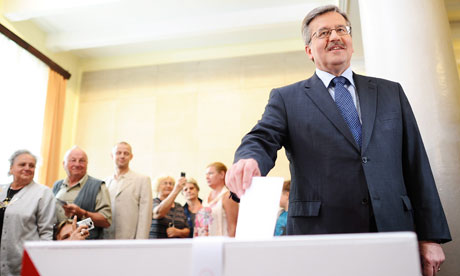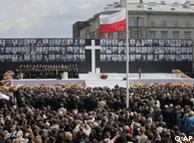
Students` opinion on understanding of Comenius project`s title
THE IMAGE OF THE OTHER * * *
On 23th of April 2010 we set out, in the name of Comenius Project for 8-day trip to Latvia and Lithuania. We were visiting museums, see sighting many places, learning culture and even we were hosted in Latvian families. Despite the fact that I spent great time in there, I also noticed many similarities and varieties between countries that had participated in Project.
Firstly we arrived to Riga in Latvia, where we were about to stay for 2 nights. As always I tried to catch some words from new language, to compare it with these that I know. It was different – a bit Russian mixed with German. Next day I focused on city itself. It shocked me with its beauty. The architectural style of building, wonderful streets and amazing chapels create, especially in night, magical atmosphere. It was really hard to leave it behind.
After Riga we went to Preiļi – town in southeast part of Latvia. Preiļi was the place where we were hosted in families – that’s the thing I’ve never experienced before. I have been welcomed warmly with honest smiles. Then I started to talk with Edgars, my host, in English. It was incredible – totally different then writing. We both knew that it isn’t our language and that it’s not an exercise. But suddenly we realized that thanks to English we can communicate! I think Edgars and I had resisted it somehow before. But that was like a trigger. After these two days he told me how much he was surprised about what happened and believe me. I was too!
Then we visited Kaunas and Vilnius in Lithuania. One thing really stuck in my head. I noticed how many historical connections have countries that participated in Comenius Project. When we were see sighting Latvian castle we got to know that it was ruled by Lithuanian King who gave it to Polish knight who hired Italian painter and architect who settled down near that castle. Such situations were very common before which ensured me that we were always together, like brothers and sisters.
When I gathered up everything I had experienced in Comenius Project, I really understood that I am a part of great European society. Now I know that however diverse we are , we feel strong need for communication and identifying ourselves. Despite many problems we still want to build bounding which we can truly call – Friendship. Mateusz Dendura
***

Between 24th of April and 1st of May me and other people from European College (mainly form my class) visited two beautiful countries, Lithuania and Latvia, to participate in meeting of Comenius Project “Image of the others”, ran by our school and its partners- schools from Preili (Latvia), Sicily (Alcamo), Ljubljana (Slovenia) and Lekėčiai (Lithuania) in last two years. This meeting was special, because it was the final one- our project came to an end.
I could write here thousands of words about places we visited or things we’ve done. Because we have done a lot- we were in Riga, capital city of Latvia; we spent some time with of Latvian friends in Preili, where we were presenting our countries, dancing traditional dances and lots more; then in Lithuania, delighted by the warm welcome, we were participating in all attraction they prepared for us and saw lots of great places in Vilnius and Kaunas.
Of course sightseeing was very important part of our trip, but there was something more, which was, in my opinion, the main aim of this project Meeting people. And they all were just amazing. We could feel their friendliness, openness. They were completely engaged in all they were doing. Thanks to their enthusiasm I spent one of the best weeks in my life there.
A great idea to me was us at families homes in Preili, not in a hotel. Because of this we could spend more time with our friends and got to know them better. For me there was an additional advantage- I was living with Edvin, guy whom I was hosting during meeting in Krakow. We really got on with together and I wanted to find out more about him, his family and interests. Even my classmates, first skeptical, after two days were astonished.
We were all sad that project came to an end. But it really doesn’t matter. Projects lasts two years, friendships- forever. Jakub Bieda
***

Every trip that I go on is a new experience and an exciting adventure, and this trip was no exception. I had a few expectations beforehand such as to return happy, satisfied, to have seen a lot of different sights and to have met a few interesting people. This trip easily met, or rather exceeded, my expectations leaving me with fondling memories and memorable photos that have captured images of things that I cannot describe with words but are worth seeing.
The Comenius Project trip to Lithuanian and Latvia was a first for me but I enjoyed every second of it. The only downside that I could find was the fact that we stayed there for only a very short amount of time which most definitely prohibited us from seeing everything that each city had to offer. Nonetheless, we managed to see some rather peculiar attractions such as The House of Blackhead and the Motor Museum in Riga, Latvia. These two places stood out to me the most because not only is the city, Riga, itself unique in its architecture and open space but also because the Motor Museum showed off some of the most impressive cars in history included the world’s fastest car which reached speeds greater than the speed of sound. The House of Blackhead was very special because it was an open, public museum, where at the time of our arrival, a couple was having a wedding which later on involved a fireworks show and a beautiful presentation where the building itself was being lit up and had music playing in the background.
I would also like to mention the warm and dear families that hosted us in their homes in Preili, Latvia. I was kindly surprised by their genuine hospitality, enthusiasm, and thoughtfulness in sharing what they had with us. I felt like I was at home and was told the entire time that their door was always open and that I could visit again anytime.
For all of those who wish to follow in our footsteps and visit everything that we got a chance to, I highly recommend that they do so. These places are worth the long trip that lasts hours and hours because nowhere else would you be able to see what we saw and experience what we experienced, not even in Cracow.
-Dabrowka Zarska
***

Last month, along with several other people from my school, I went on a weekly trip to Latvia and Lithuania. To get there we had to travel by bus for about 12 hours, it was exhausting. On the first day after our arrival we had the opportunity to see Riga, the capital of Latvia. It was something amazing for me, like the mixture of Warsaw and Cracow. Tall buildings and old architecture blend in quite nicely. I really liked the fact that we went to see a motor museum, I have never been in one and it was the biggest in Europe. We spent there 2 days and were soon of to a small town called Preili. I really didn’t want to leave. In Preili we were all met to sleep in families. I was really scared but excited at the same time. I have never been hosted before and i was quite curious how it is. Traveling there my mind keep on asking the same nervous questions if my host will be nice, will we be able to communicate, will she like me, and so on. At the end it wasn’t as scary as I thought, it was fun. If someone asked me if I would do it again I would say, yes, why not. One day we all went to visit there school, they had prepared for us lots of lovely presentations and performances. We were prepared as well of course. I had to play the piano. Oh no, it was a tragedy. I never felt so embarrassed in my life. Anyway everything turned out fine. The next few days we spent with our new friends in Lithuania. It was amazing again, all the preparations. I really enjoyed the trip, I learned many interesting things about these beautiful countries. I saw many interesting places and monuments. I am sure that I will never forget this trip to the end of my life and certainly I want to go back. Alexandra Bittner
***

I first learned about Comenius project and came into contact with different cultures and people from overboard In Cracow when the Comenius took place In Poland. I never before that time saw a foreign exchange or had chance to take part in one, so Comenius Project opened my eyes to the cultural differences and the amazing feeling of being where I am belonging to certain culture and being different than others. For the first time in my life I felt proud to be Polish to represent a group of people, a country, a culture. In Cracow I met with exchange students and especially Edwin who stayed with a friend from class Kuba Bieda. Then later that same year we went to Latvia and Lithuania and visited them in their own country were we stayed in Riga and Preili. I stayed with a girl Baiba Upienice and had a great time. We stayed with the locals in Preili 2 days and 2 nights. Very first day we went home and socialized with our hosts, we learned a bit of their culture, their interest and lives and on the second day we had a group meeting in the school and lunch later. In the meeting there were shown presentations 2 from our country and many more from others. Our presentations were on Chopin and the tragedy in Smolensk. Later we had a meeting with the mayor and learned about business situation of Preili as well as tour of the city. On the 3 day in the very morning we went to Lithuania. We stayed and visited Kovno, and visited partner school in the country were we were most welcomed. They also showed us traditional dances a bit of their culture and history of the country as well as few famous English songs. The stay was very enjoyable in both countries and we learned about different people and their life views, as well as their daily struggles and communities. We learned that we aren’t the only ones in the world and that there are much different cultures and people that are important. Ben Pailder-Traczyk





























